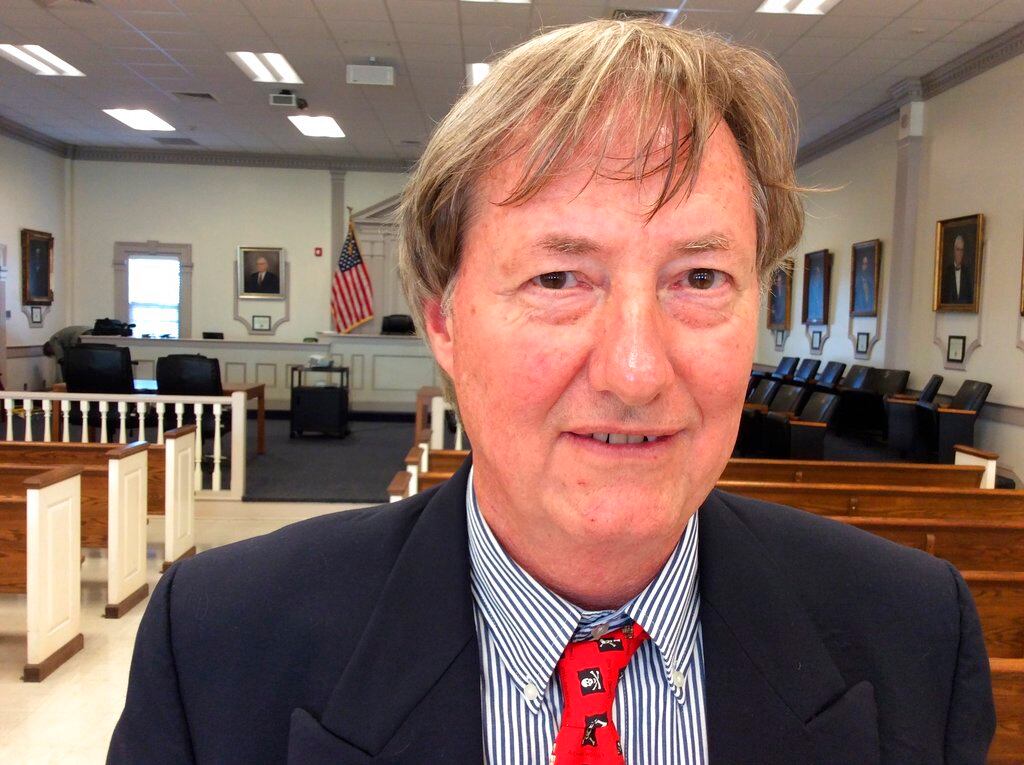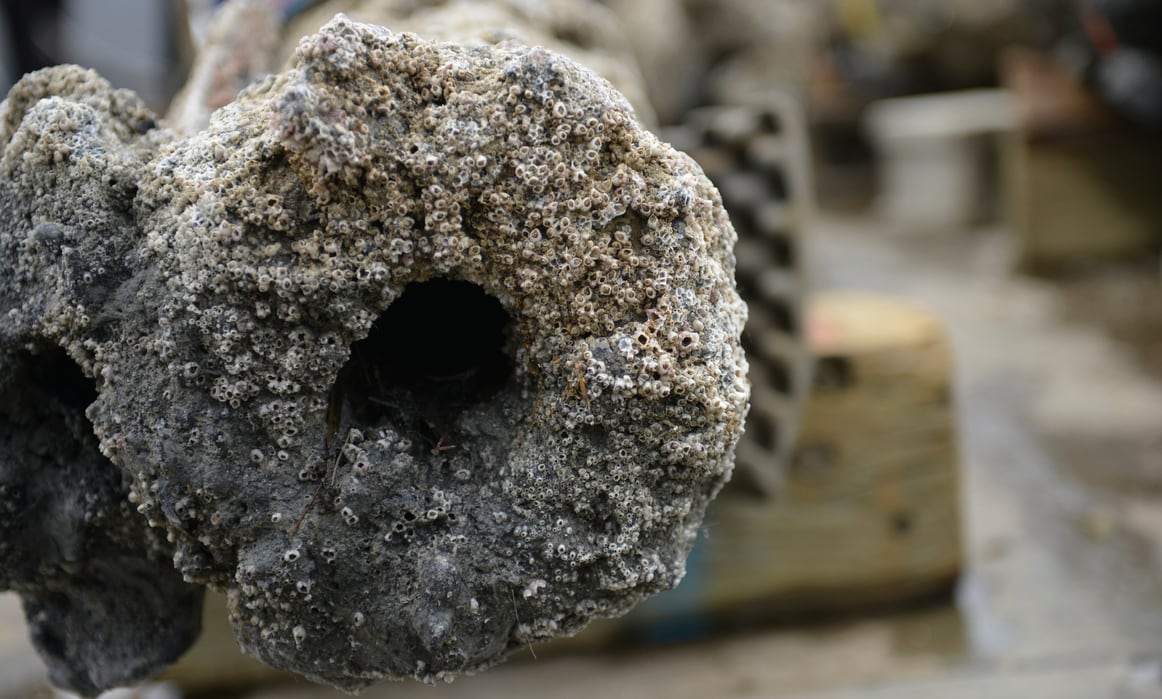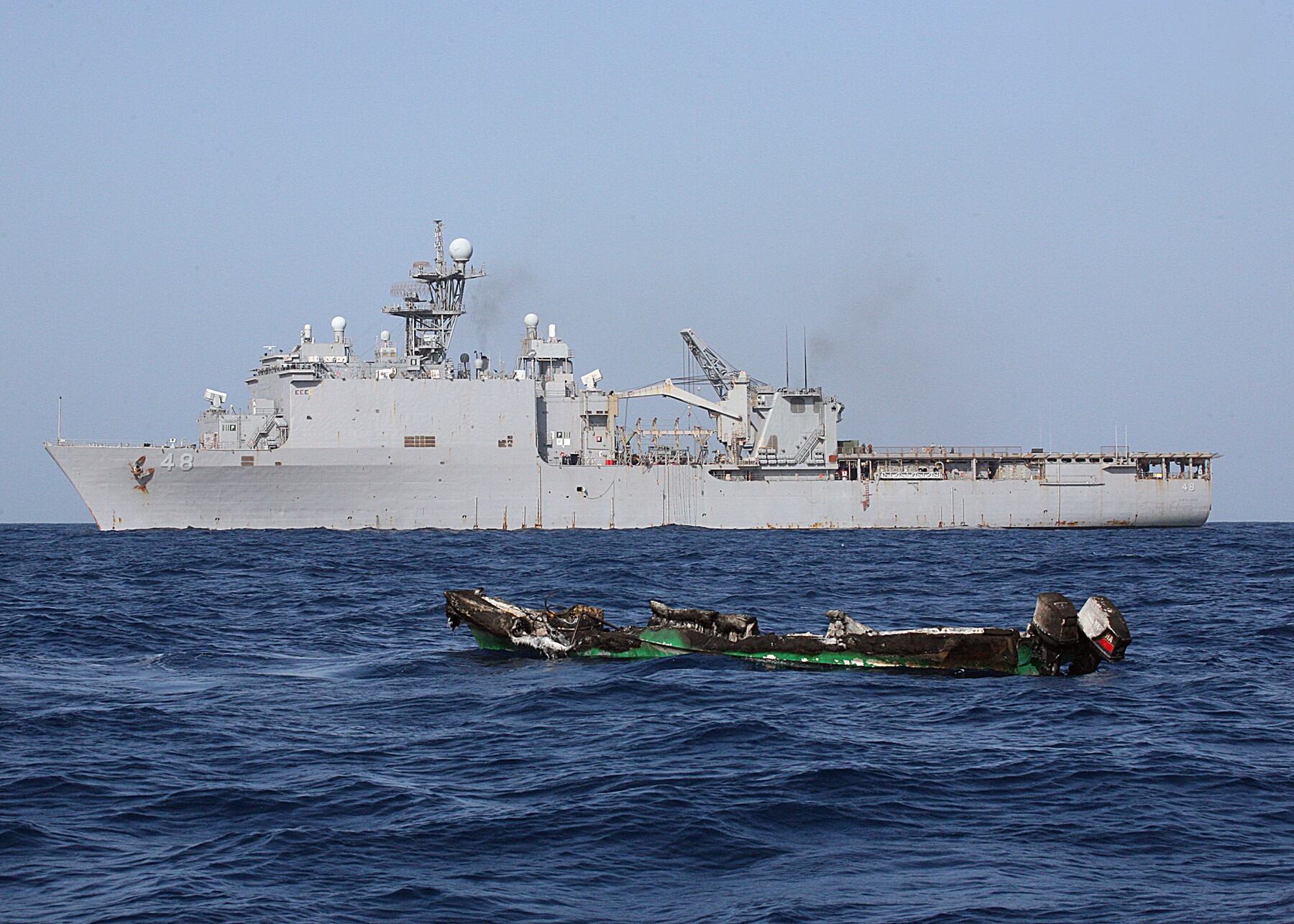WASHINGTON, N.C. — A cast of political and legal adversaries met in a Beaufort County courtroom Friday to argue the guilt or innocence of the notorious pirate Blackbeard, 300 years after he was killed in a battle in the waters off North Carolina’s Ocracoke Island.
It was a mock court, but the evidence presented came straight from the historical record, and the questions were real.
Was Blackbeard a stone-cold criminal who treasonously slaughtered King George I’s men aboard their ship that November day in 1718?
Or was he the victim of an unlawful ambush fighting in self-defense against a crew of men he had no way of knowing represented the royal crown?
"We are specifically interested in whether it was lawful and proper for the colony of Virginia to dispatch armed forces into their neighboring colony of North Carolina in order to capture or kill suspected pirates operating out of the ports of Bath and Ocracoke," real-life Superior Court Judge J. Carlton Cole told the courtroom.
Over the course of the next two hours, nearly 100 observers, including dozens of local school students and some county residents who may claim descendancy from some of Blackbeard's former crew members, listened as present-day Beaufort County District Attorney Seth Edwards faced off against business and probate attorney J. Erik Groves of Waxhaw.
Edwards represented a powder-wigged Virginia Lt. Gov. Alexander Spotswood, portrayed by Dennis Loba of Virginia. It was Spotswood who personally financed the hiring of a pair of private vessels and crew to make a foray into the waters off North Carolina to find and either kill or capture Blackbeard and his piratical associates.
Groves represented Blackbeard, portrayed in villainous splendor by Carl Cannon of Beaufort.
Having been slain and beheaded during the skirmish in 1718, Blackbeard did not take the stand in his defense at Friday's proceedings.

The event was one of many in coastal N.C. communities this year that have commemorated the 300th anniversary of Blackbeard’s demise, some more scholarly than others. This one was organized and scripted by N.C. historian, author and filmmaker Kevin Duffus, who has spent thousands of hours finding and studying primary-source documents to try and sort Blackbeardian legend from truth.
As costumed players noted in "court" using details Duffus has gleaned from his years of research, Blackbeard — whose non-pirate name likely was Edward Thatch and who may have been born Edward Beard in Beaufort County — has been the subject of much conjecture and exaggeration, some of it his own.
Blackbeard is said to have cultivated a fearsome reputation during his two years as a professional pirate, but that may have been a way to prevent violence rather than to promote it. If other ship captains believed he might kill them, the theory goes, they might have been more likely to give up their cargo without a fight.
Through "testimony" on Friday, Duffus showed that the lieutenant governor of Virginia might have used Blackbeard's notoriety to justify sending armed forces into North Carolina, when what he may really have wanted was to embarrass then-Gov. Charles Eden and possibly seize Blackbeard's rumored piles of treasure.
As Duffus asserted Friday, the 1700s were difficult economic times for colonial governments and their people, both of whom may have been willing to take what didn't belong to them in order to survive.
Even George I was willing to overlook a bit of plundering. He issued a pardon for pirates, which North Carolina extended to Blackbeard and his men though they did not technically qualify for it, having committed additional crimes after the cutoff date it specified. George issued a second, more lenient pardon that almost certainly would have exonerated Blackbeard and his men if they had lived to see it arrive by ship from England.

Role-players at Friday’s hearing suggested Blackbeard might have been getting out of the pirate business in 1718. He may have intentionally run his flagship, the Queen Anne’s Revenge, aground near Beaufort Inlet off present-day Atlantic Beach, forcing the immediate layoff of most of his 300 men. He later traveled with a smaller group to Ocracoke, and was there in November when Spotswood’s hired guns found him.
Accounts of the day report that when he saw the ships approach him, Blackbeard called to ask who they were and where they were from. The leader of the mission, Lt. Robert Maynard, played Friday by John Collamore of Virginia, told him they weren't pirates, and that they were coming for him.
Spotswood had hired the men under the authority of a general proclamation by the king to go after pirates, but he had no specific charge from George I to pursue Blackbeard. Spotswood, not the Royal Navy, paid the men, whose personal boats had no insignia of the Royal Navy. At the time, the Royal Navy had no uniforms, so the men wore clothing of the day.
Spotswood indicated the ship had a flag, likely the Union Jack, but the weather was so still that day that the ships to be pulled by row boats, so the flag likely was hanging limp.
Under the circumstances, Duffus postulated, Blackbeard probably thought he was being attacked by disgruntled former employees or South Carolinians looking for revenge over his earlier blockade of their Charleston port.
RELATED

For his part, Spotswood argued through his living history actor, he viewed it as his duty to go after Blackbeard because Gov. Eden not only tolerated the pirate, but was in cahoots with him.
The exercise had no effect on Blackbeard's legal standing. But in Duffus' view, it wasn't Blackbeard who was on trial Friday, but popularized history, which sometimes lacks context and often overlooks facts.
“The evidence is overwhelming,” Duffus said afterward, “that Blackbeard wasn’t such a bad guy.”




